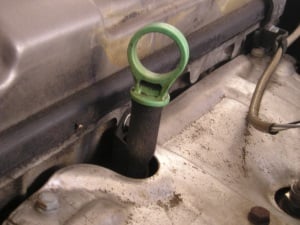Healthy Oil Series: Is Synthetic Oil Worth It?
The automakers of many newer vehicles are recommending use of synthetic oils in those vehicles. Synthetic oils cost more which leads some consumers...
One of the dirty little secrets in the engine lubricant industry is that sometimes a synthetic oil isn't really synthetic. This is news to consumers who pay a premium for the the highly refined quality and the piece of mind they have knowing that they're putting synthetic oil in their vehicle.
The American Petroleum Institute classifies engine lubricant oils according to a class of base stock that they use. Technically there are five classes (I through V). The higher you go, the more expensive they become. The interesting thing is that in the USA and Canada, groups III, IV and V are marketed as synthetic oils and have the price tag to go with it. But a Group III oil technically isn't synthetic. It's just so highly refined that some lubricant engineer consider it to be equivalent to a synthetic oil in its properties. So an oil might indicate in its specifications that it's a synthetic group made with a Group III base stock. But what it really means is that it's priced like a synthetic but its Group III base stock isn't synthetic at all, but a more highly refined conventional petroleum oil.
Should you concerned as a vehicle owner that you aren't getting what you pay for? There's a key distinction to pay attention to. What matters most in the end isn't whether the engine lubricant is labelled as synthetic or not. What matters is if the additive package in the lubricant is robust enough to last through the longer drain intervals that synthetic users like to use. Part of the perceived benefit of using synthetic oil is to be able to go longer between oil changes. If you're using a Group III engine lubricant, you want to make sure it contains a premium additive package. If it does, then you're probably well protected when you go longer between oil changes, even though the base oil isn't technically synthetic. If you buy a Group III mis-labelled synthetic oil that only has a conventional additive package, it's going to run out faster and leave you less well-protected if you go longer between oil changes.

The automakers of many newer vehicles are recommending use of synthetic oils in those vehicles. Synthetic oils cost more which leads some consumers...

People who have classic cars go out of their way to baby them, to take care of them. It’s not just because they have a bunch of money invested in...
Nobody likes a noisy engine, and if you have one, you’re probably on the lookout for an easy fix for it. In truth, there are lots of potential causes...